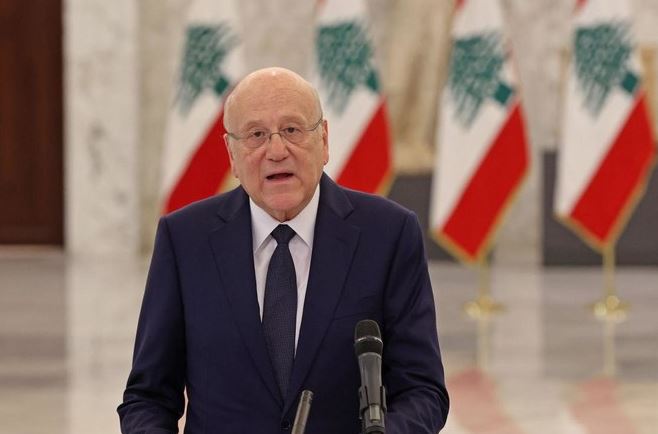BEIRUT: Lebanese caretaker Prime Minister Najib Mikati was designated on Thursday to form a new government, but faces a politically difficult path to agree a new cabinet as the country’s devastating financial crisis festers.
The Sunni Muslim billionaire was nominated premier for a fourth time after securing the support of 54 of parliament’s 128 lawmakers, including the Iran-backed Shiite Muslim party Hezbollah, in consultations convened by President Michel Aoun.
But with splits running deep among Lebanon’s ruling elite, it is widely believed Mikati will struggle to form a government, spelling political paralysis that could hamper reforms agreed with the IMF to unlock aid.
Now in its third year, the financial meltdown has sunk the currency by more than 90 percent, spread poverty, paralyzed the financial system and frozen depositors out of their savings, in Lebanon’s most destabilising crisis since the 1975-90 civil war.
Mikati, who has already served as prime minister three times, continues in a caretaker role until a government is formed, a process that typically goes on for months as political factions divvy up roles in cabinet and beyond.
Analysts and politicians expect this cabinet formation process to be further complicated by a looming struggle over who will replace Aoun, the Hezbollah-aligned Maronite Christian head of state, when his term ends on Oct. 31.
Parliament — which elects the new president — emerged highly fractured from a general election last month. The heavily armed Hezbollah and its allies lost their majority, reform-minded newcomers made a strong showing and the Christian Lebanese Forces party gained seats.
Reflecting the new landscape, Mikati, who hails from the northern city of Tripoli, secured around 20 fewer votes than when he was last designated prime minister in September.
Forty-six lawmakers named no one for the post, while 25 voted for Nawaf Salam, a former Lebanese ambassador to the United Nations and now a judge at the International Court of Justice.
Mikati’s cabinet secured a draft IMF funding deal worth $3 billion in April, contingent on the implementation of reforms which Lebanon’s ruling factions have long obstructed.
An IMF deal is widely seen as the gateway to easing the financial crisis, but the political and financial elite remain divided on the details, including how to share out an estimated $70 billion in losses in the financial system.

